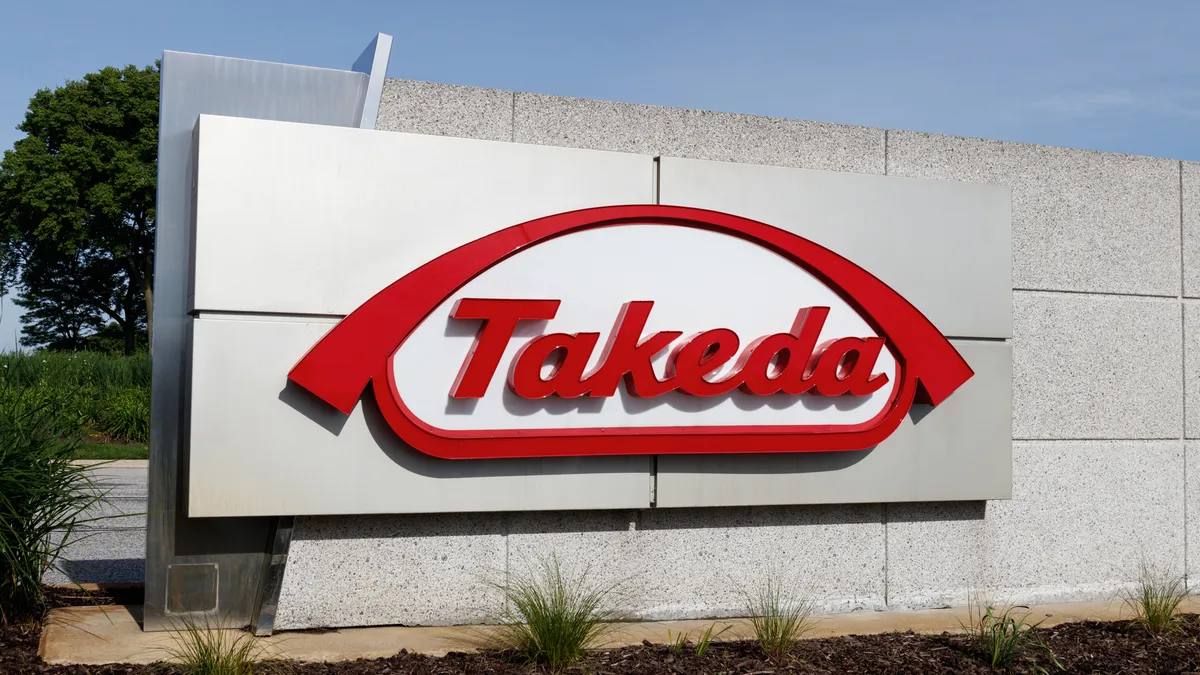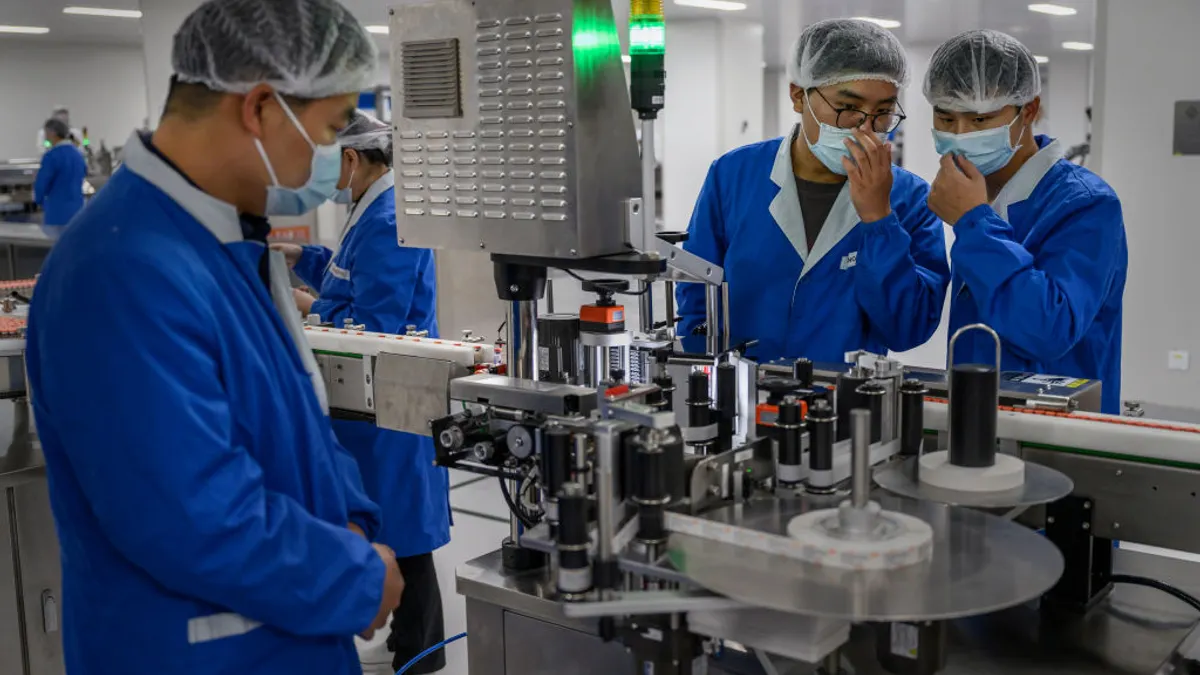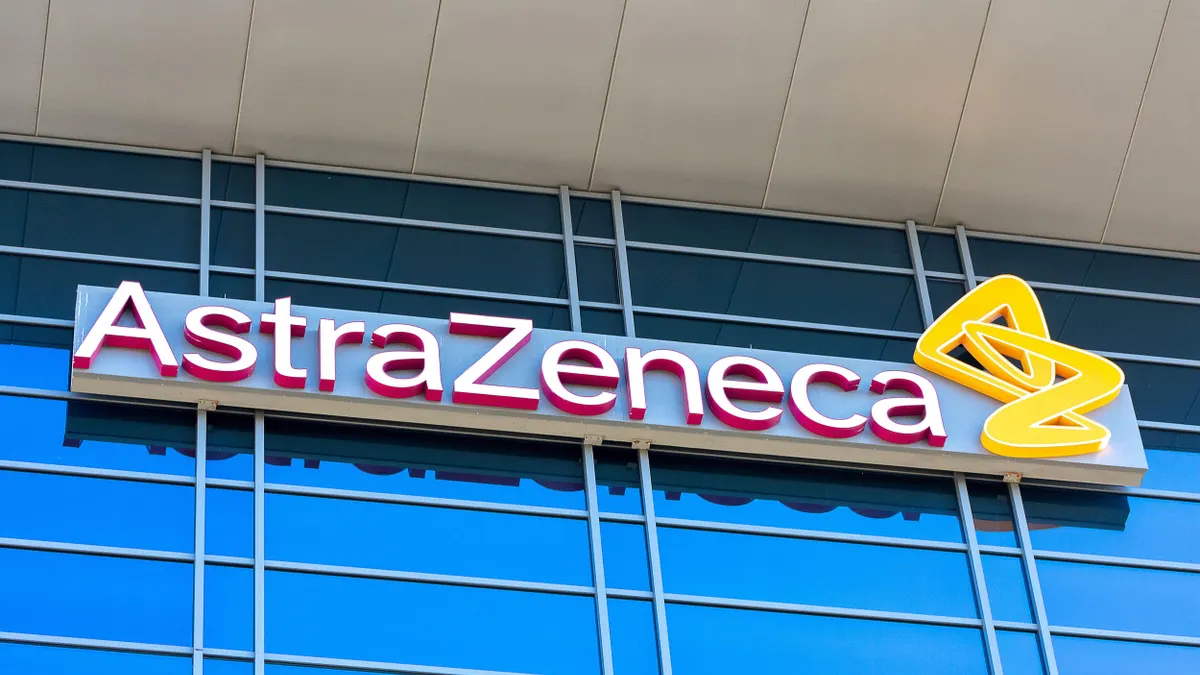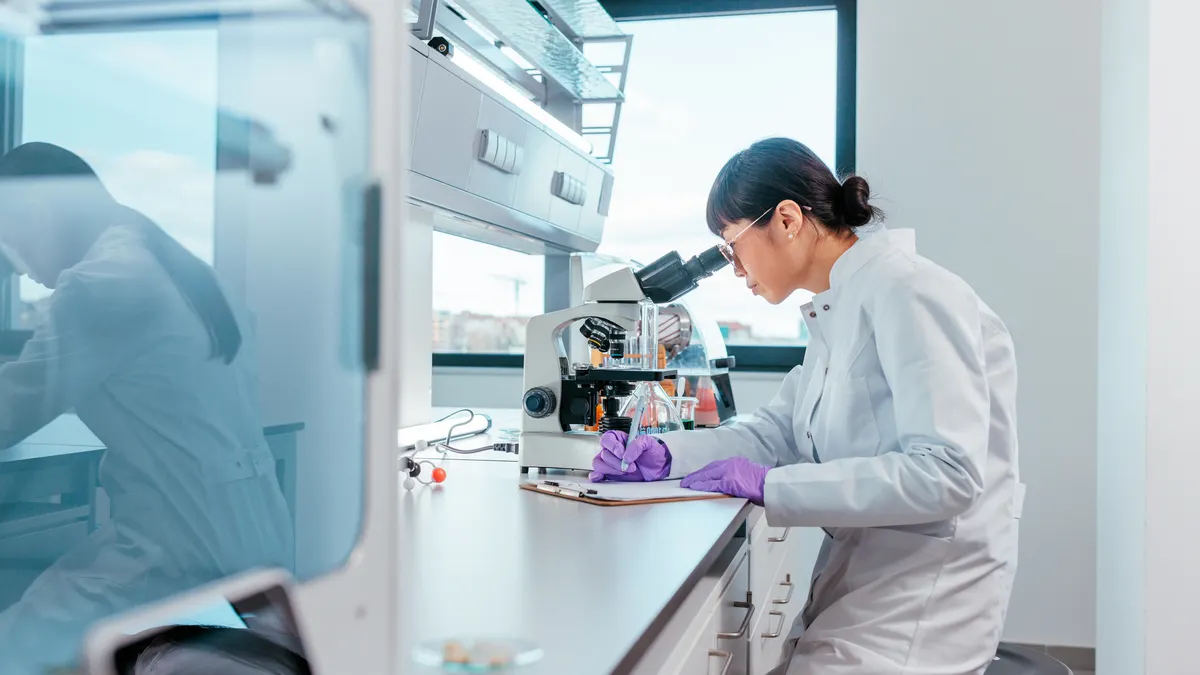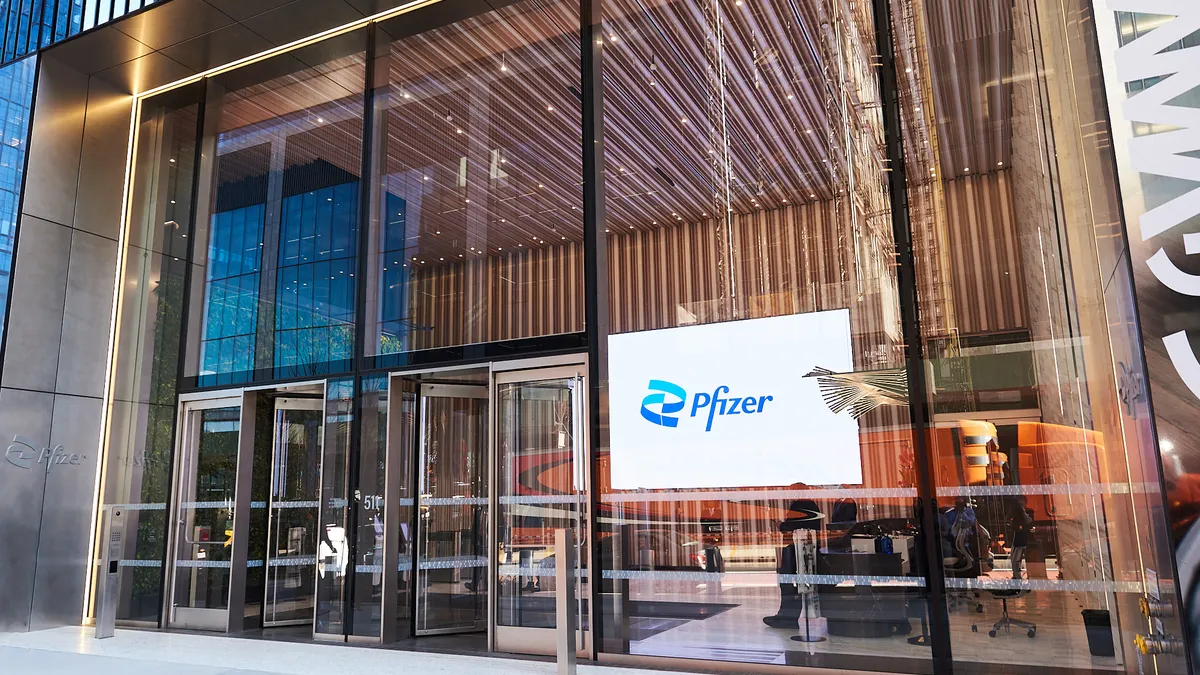Dive Brief:
- French drugmaker Sanofi agreed to pay $125 million to startup Earendil Labs for two drug candidates designed to treat autoimmune and inflammatory bowel diseases.
- Under the terms of the deal announced Thursday, Earendil may receive as much as $1.72 billion in additional payments for reaching certain development and commercial goals, including $50 million described as a “near-term payment.” The startup will also be eligible for royalties if the drugs reach the market.
- The candidates, HXN-1002 and HNX-1003, are bispecific antibodies designed to engage two different proteins in the body involved in inflammation and immune cell activation. HXN-1002 is being developed for patients with ulcerative colitis and Crohn’s disease. HXN-1003 has shown promise in preclinical models of colitis and skin inflammation, Earendil said.
Dive Insight:
Dual-targeting antibodies have drawn considerable interest from pharmaceutical companies in recent years. But while much of the early activity centered around oncology, many drugmakers of late have focused on bispecifics’ potential treating autoimmune conditions. Sanofi just last month agreed to pay $600 million to Dren Bio for a drug it hopes can “reset” the immune system.
HXN-1002 is designed to inhibit α4β7 and TL1A, while HXN-1003 takes aim at TL1A and IL23, the latter two of which have become popular targets for drugmakers. The approved medicines Tremfya, Skyrizi and Ilumya are all IL23 inhibitors. TL1A, meanwhile, is the focus of a raft of research by top drugmakers including Merck & Co., Roche, AbbVie and a collaboration between Sanofi and Teva Pharmaceuticals.
Earendil gave few details about its prior research on HXN-1002 and HXN-1003 in the news release on Thursday and its website consists only of a home page. The U.S. startup is associated with Helixon Therapeutics, which is backed by a number of Chinese venture capital firms, and is part of a growing biotechnology sector in China that is increasingly attracting partners in the U.S.
Earendil uses artificial intelligence to streamline drug discovery and speed up development. The company says it’s focused on protein-based biologics and aims to produce drugs that are either the first of their kind or the best in a particular group.












